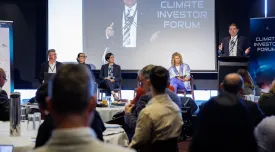Breadcrumb
- Home
- Industry Insights
- Melbourne’s climate sector; A model for investment and innovation
Melbourne’s climate sector: A model for investment and innovation
As global climate challenges intensify, the intersection of economic development and climate innovation has never been more important.
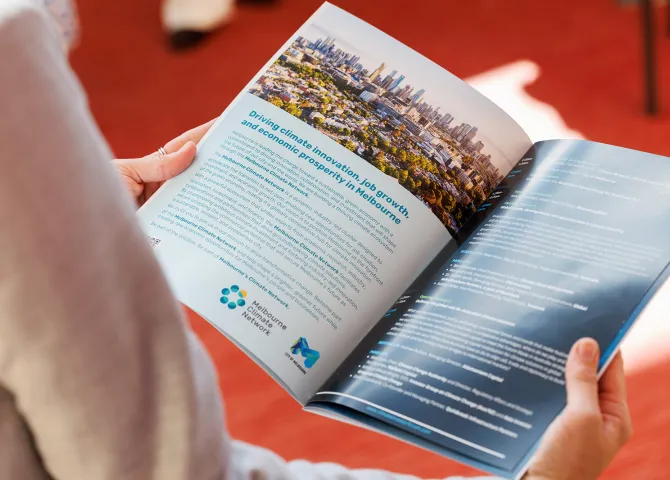
by Andrew Wear, City of Melbourne
As global climate challenges intensify, the intersection of economic development and climate innovation has never been more important. Investors, governments and industry leaders are increasingly looking to cities as key enablers of climate solutions. Melbourne provides a compelling example of how city-led initiatives can not only drive emissions reductions but also stimulate investment and job creation in emerging green industries.
Discussions at the Climate Investor Forum highlight the urgency of action. It is essential to explore the role that cities like Melbourne can play in mobilising capital, fostering innovation and scaling solutions that address both environmental and economic imperatives.
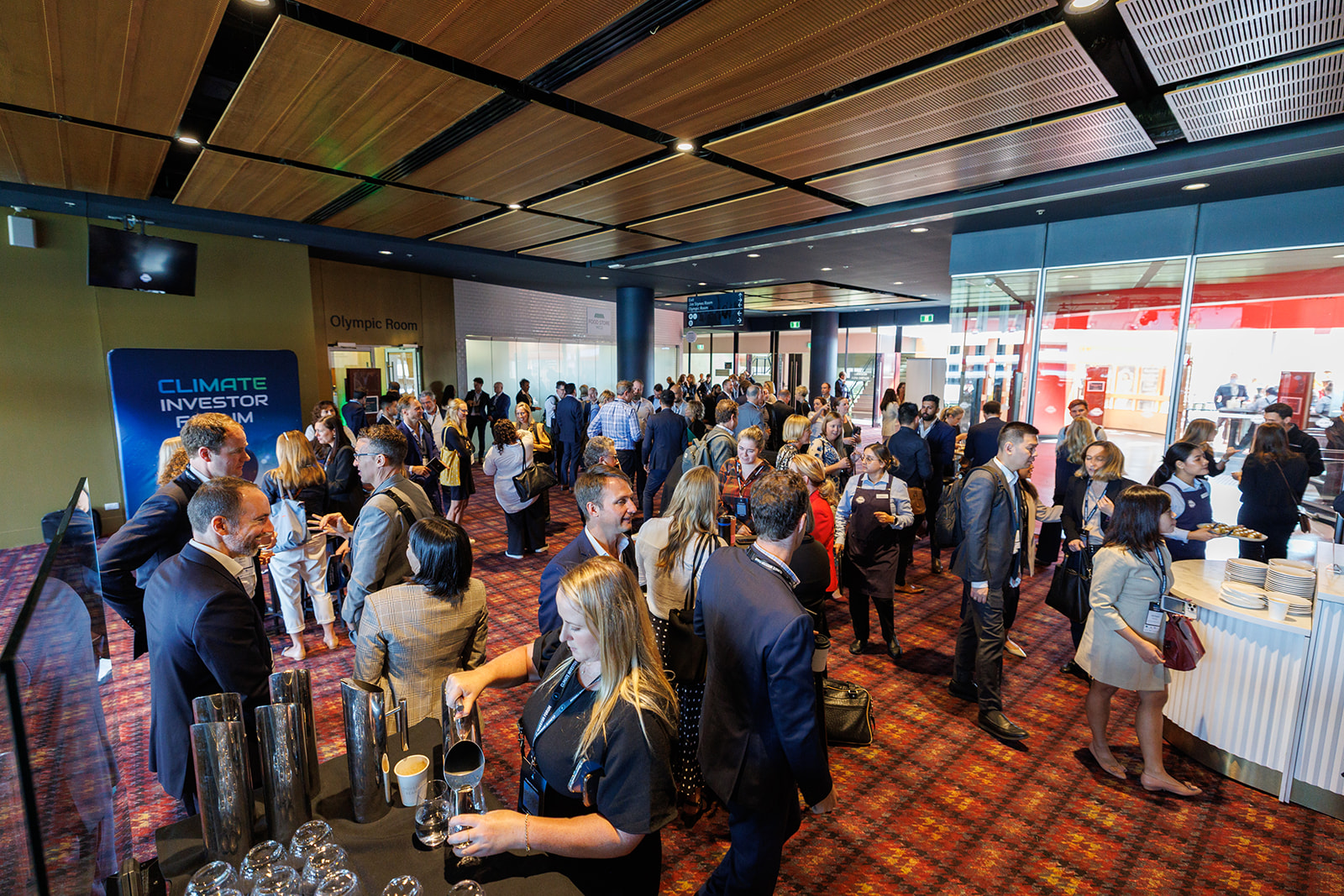
Photo credit: EventPhotos at Climate Investor Forum 2025
Melbourne’s climate sector ecosystem
Melbourne has long been recognised as a global hub of research, advanced manufacturing and technological innovation. In recent years, it has begun to strategically position itself as a leader in climate technology, leveraging its strengths to accelerate the green transition. The Melbourne Climate Network, launched by the City of Melbourne exemplifies this effort. It brings together diverse stakeholders from industry, academia and government to advance climate-focused economic development.
A recent assessment of Melbourne’s climate sector ecosystem highlights its key strengths:
- A thriving research sector with expertise in areas such renewable energy and sustainable materials.
- An advanced manufacturing base capable of producing cutting-edge clean technologies.
- Strong investor and financial sector presence, though gaps in mid-stage funding remain a challenge.
- Government commitment to climate action, including ambitious emissions reduction targets and supportive policy settings.
While Melbourne has the fundamental ingredients for a world-class climate technology ecosystem, unlocking its full potential requires targeted action – particularly in attracting investment and supporting commercialisation.
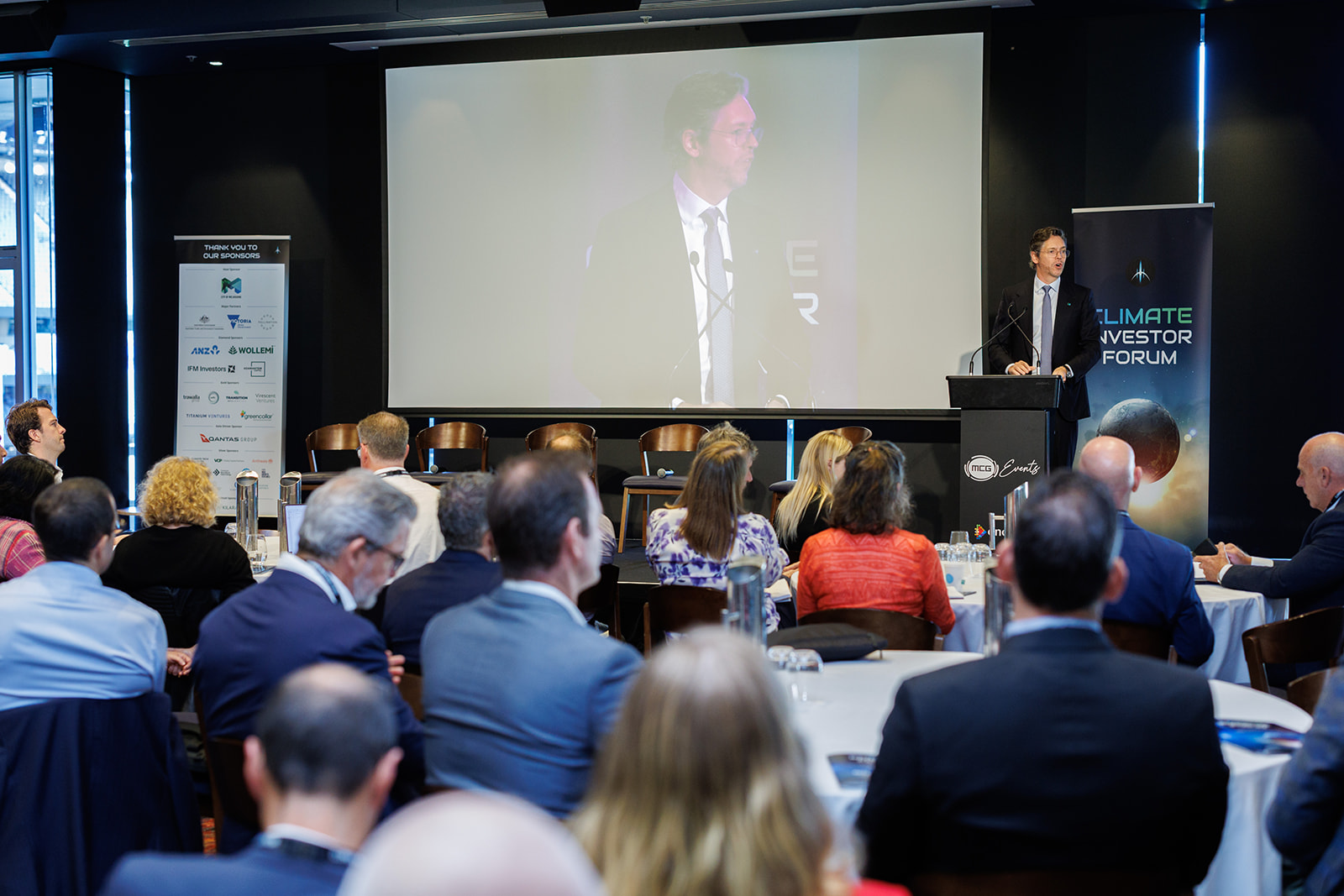
Photo credit: EventPhotos at Climate Investor Forum 2025
Bridging the investment gap
One of the most significant hurdles for climate startups and scale-ups is securing capital at the critical mid-stage of development – the so-called ‘valley of death.’ While early-stage innovation thrives in Melbourne’s research institutions and startup incubators, translating these ideas into viable commercial enterprises remains a challenge.
Three key strategies could help bridge this investment gap:
- Blended finance models: Public-private partnerships that de-risk early investments in capital-intensive clean technologies. The City of Melbourne or the Victorian government are both well-placed to convene discussions and facilitate partnerships between philanthropic organisations, institutional investors and industry to explore blended finance mechanisms.
- Strategic procurement and piloting: City governments and large enterprises can play a crucial role in validating new technologies by acting as first customers. The Power Melbourne Community Battery project is a strong example of this approach, demonstrating how local investment in energy storage can provide both immediate benefits and a testing ground for broader adoption of clean energy solutions. Embedding emerging climate solutions into procurement processes can provide climate startups with the revenue streams and investor confidence needed to scale.
- Investor engagement and global positioning: Attracting international venture capital requires active engagement. There is further opportunity for Melbourne and the Victorian government to host international investors during major events – such as EvokeAg, South x Southwest and ImpactX – to showcase the city’s climate sector and educate them about local opportunities.
The role of city governments in driving climate investment
City governments are often under-utilised but highly effective catalysts for industry growth. Unlike national governments, cities operate at the scale where innovation meets application – where new technologies can be tested, refined and commercialised.
Cities can take practical steps to enhance climate investment ecosystems:
- Creating regulatory incentives to stimulate demand for clean technology (eg. green building codes, emissions reduction targets for businesses).
- Developing innovation hubs that co-locate startups, researchers and investors to accelerate collaboration.
- Actively facilitating connections between investors and climate tech firms by hosting investor roundtables and trade delegations.
Melbourne continues to make progress in these areas, but with stronger alignment between government initiatives and private sector investment, it could cement its status as Australia’s leading city for climate finance. Strengthening collaboration and investment attraction efforts will be key to ensuring Melbourne remains a globally competitive climate innovation hub.
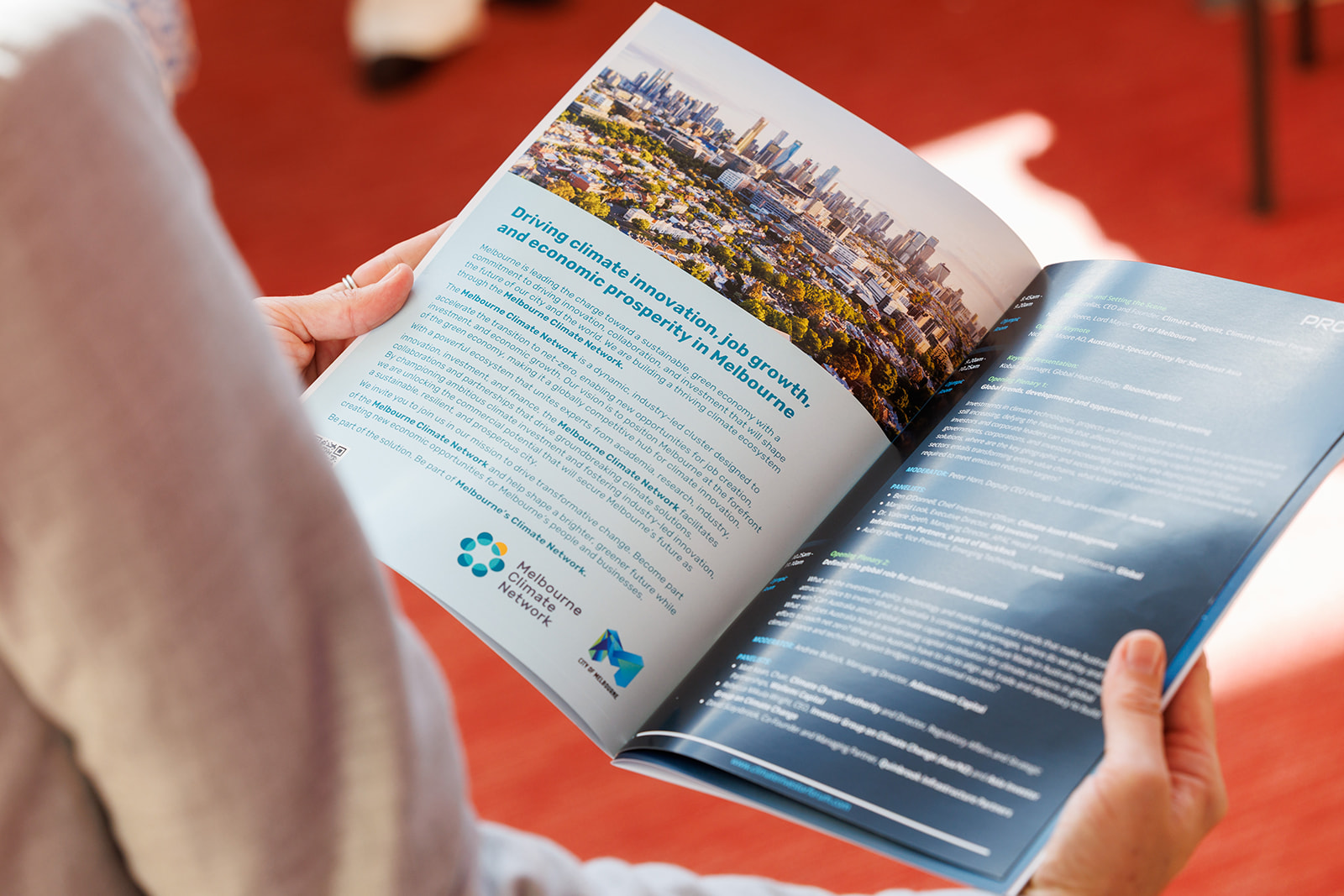
A call to action for investors and policymakers
The transition to a low-carbon economy represents a $50 trillion investment opportunity globally. While much attention is focused on national policies and multinational corporations, cities will be the proving ground for many of the technologies and business models that will define the next era of climate action.
Melbourne provides a model for how cities can take a proactive role in shaping climate investment ecosystems. The combination of a strong research base, advanced industry capabilities and a supportive policy environment makes it an attractive destination for climate-focused investors. However, unlocking its full potential will require targeted efforts to close funding gaps, scale innovation and position the city as a global leader in climate technology.
For investors, the message is clear: The future of climate investment isn’t just in national capitals or Silicon Valley – it’s in cities like Melbourne, where economic development and climate action intersect to create lasting impact.
(All photos credit: EventPhotos from Climate Investor Forum 2025)





